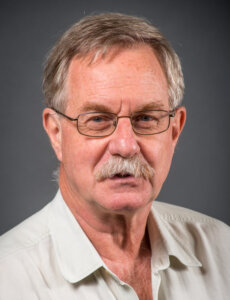The Rural Health Services Research Network of BC (RHSRNbc) is creating a supportive infrastructure to facilitate the investigation of issues relevant to rural health services from the perspective of the population, health services, and clinicians. Its mission is to achieve and support excellence in rural health services by, for, and with Indigenous and non-Indigenous rural communities, providers, and researchers. The goal of the Network is to increase communication, collaboration, and capacity for better research and health outcomes for rural communities. The Network is housed within UBC’s Faculty of Medicine (Department of Family Practice) and funded through the Rural Coordination Centre of BC (RCCbc).

Explore the numbers
4 Conferences participated
The RHSRNbc team took part in the30th Annual SRPC (3 workshops), 2023 Rural Health Conference (exhibitor), University of Alaska Fairbanks One Health Series 2023, BCCI Colloquium 2023 (Panel on youth leadership)
$18,859 Funded to students
This funding is to support student or team building awards, related to rural health research
7 Students supported
Number of students and projects that we have supported in the year through the FLEX program (non-financially)
5 Manuscripts submitted
These manuscripts have been accepted or waiting to be reviewed with 4 manuscripts in-progress
Partnership Work
In 2023, RHSRNbc developed and maintained several key partnerships and collaborations that helped ensure that the work being done is led by community perspectives and aligns with the goal of ultimately improving rural health services for community and individual health and wellbeing. Our partners include:
- Pacific Health Equity Network (PHEN, formerly known as BCCI)
- Institute for Global Solutions at Claremont Secondary (Victoria, BC)
- Info Hub at RCCbc and the Community Engagement Action Plan (CEAP)
- The Research Support Group, which invites a diverse group of members related to rural health research from across the province to come together and provide updates and research support to each other. Members include individuals appointed at RCCbc, at the various health authorities, and other academic-based institutions.
- The SRPC Environment Committee
Making a Difference
The second-year FLEX project on team dynamics in rural emergency departments has been met with a very positive response from both medical students and health authority staff. Funding provided by the RCCbc Research grants program has further amplified the potential for completing an important piece of work. This project is being led by a medical student who was a nurse in the Merritt ER for 7 years before being admitted to medical school. The second co-lead student on the project was a paramedic in Fort St John for several years before starting her medical education. The Network is excited to support them in this important work. Somewhat surprisingly a number of other students have expressed interest in joining the project approx. 10 to date) and almost all of these students have found an alternative but related project in the area of rural health services. We have completed behavioural and site ethics including having a meeting with institutional managers from some of the IH facilities involved and received not only permission to do the study but a solid endorsement for the direction of the work. We plan to carry out the study during the flex block in April 2024 and then write up the findings for publication.
Plans for the Future
For this upcoming year, the RHSRNbc will continue to work on developing the Data Amplification project, and potentially expand our collaborations to include other organizations in the field of rural health service provision who may benefit from such a tool. We are also hoping to complete several manuscripts related to the methodology and concepts that have come out of this project, such as the concept of 1-hr catchments, and the RGPSI score.
Since Fall 2023, we have also begun the preliminary stages of planning a second volume to the learning hub, which will have a greater emphasis on the implementation and application of many themes that are described in the first volume. We hope that the development of this second volume will continue to move forward with the guidance and support of our CCEDARR Advisory group, including our Indigenous partners on the committee. At the same time, we will be working on revising some of the content in the first volume, to reflect the status of many rural communities, regarding their work in developing resilience in the face of ongoing climate change and ecosystem disruption.
2024 will also be a year where we will continue focusing on engaging with both youth and medical students across rural BC and provide opportunities for them to collaborate and have their voices be lifted. In May, we hope to host a one-day virtual youth symposium, with parts of it being led by medical students or high school students. In addition, we will continue supporting UBC FLEX students and their projects.
Team Members
Click on a team member to explore which other projects they have contributed to in the past year.

Stefan Grzybowski
Director, Rural Health Services Research Network of BC
Stefan Grzybowski’s Projects: Annual Reports

Esther Kim
Network Coordinator – Rural Health Services Research Network of BC





